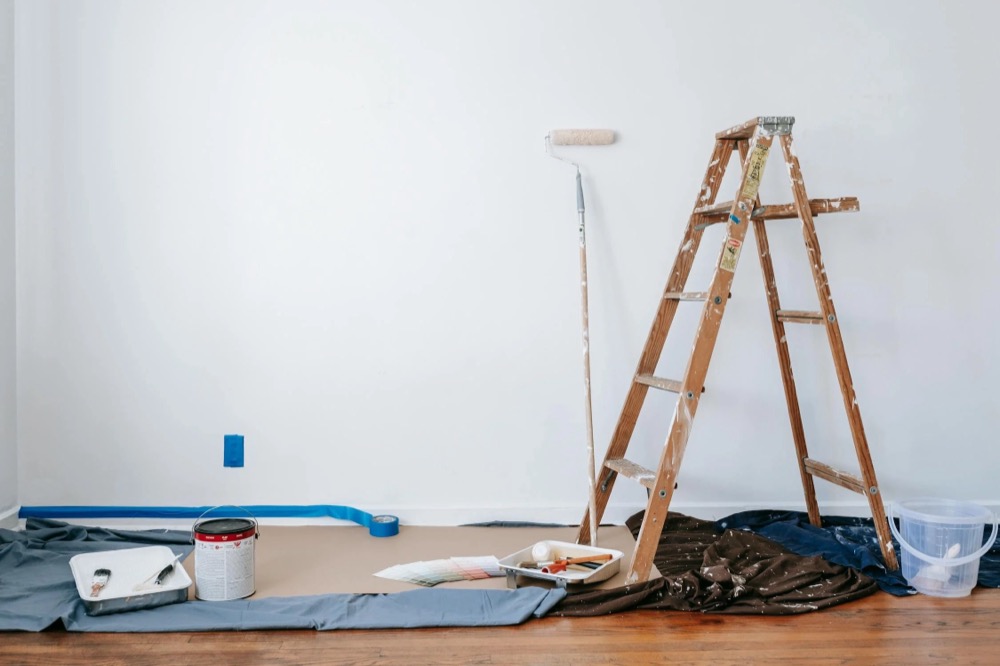By using our website, you agree to the use of cookies as described in our Cookie Policy
a
Rss Feed
Aluminium vs uPVC Double Glazed Windows
Overview of Materials
Aluminium and uPVC are the primary materials used in double glazed windows. Each has distinct properties that make them suitable for different applications.
Properties of Aluminium
Aluminium is known for its strength and durability. It is a lightweight material, making it easy to handle and install. Aluminium windows can be slim and sleek, providing a modern aesthetic that many find appealing.
This material is also highly resistant to corrosion, ensuring longevity with minimal maintenance. Aluminium frames can be powder-coated in various colors to match any design.
Thermal performance is a notable consideration with aluminium. It can conduct heat and cold more easily than uPVC, but modern thermal breaks can minimize this issue.
Properties of uPVC
uPVC, or unplasticized polyvinyl chloride, is a popular choice for double glazed windows due to its excellent thermal insulation properties. It provides exceptional energy efficiency, helping to lower heating and cooling costs.
This material requires minimal maintenance since it’s resistant to rot, rust, and corrosion. uPVC windows are also available in various finishes and colors, though customization options are more limited compared to aluminium.
Additionally, uPVC offers good soundproofing qualities. The material is durable but not as strong as aluminium. It is ideal for homeowners looking for a cost-effective, energy-efficient option.
Acoustic Insulation
When considering double glazed windows, acoustic insulation is a key feature. Both aluminium and uPVC windows offer various soundproofing benefits, but they differ in some significant ways
Soundproofing Qualities of Aluminium
Aluminium double glazed windows provide solid soundproofing capabilities.
The metal frame is inherently strong, reducing vibrations that can transfer noise.
Aluminium windows often come with larger windowpanes and thicker profiles, which further enhance acoustic insulation.
The use of thermal breaks within aluminium frames can also help to block sound. Thermal breaks are materials inserted between the inside and outside portions of the frame, reducing noise transmission.
Higher performance acoustic glass can be paired with these frames for even better results.
Soundproofing Qualities of uPVC
uPVC double glazed windows are known for their excellent soundproofing properties.
The nature of uPVC material helps to absorb sound waves more effectively than aluminium.
The multi-chambered design within uPVC frames aids in trapping and isolating noise, acting as a barrier.
uPVC windows frequently use multiple air gaps and seals, which contribute to enhanced acoustic insulation.
Double or even triple glazing can be applied with uPVC frames to improve performance further.
By using laminated or acoustic glass, uPVC windows can significantly reduce the level of external noise entering a building.
Thermal Performance
When considering thermal performance, both aluminum and uPVC double-glazed windows have distinct characteristics. Each material offers specific benefits regarding heat retention and energy efficiency.
Heat Retention
Heat retention plays a pivotal role in evaluating window performance. uPVC windows excel in this area due to their low thermal conductivity. The material acts as an effective insulator, reducing heat transfer from the inside to the outside of the building.
In contrast, aluminum windows naturally conduct heat more readily. This can result in higher heat loss if not properly mitigated. To improve thermal performance, aluminum windows often include a thermal break, a non-metallic section between the aluminum. This thermal break can significantly reduce heat transfer and improve overall insulation.
Energy Efficiency Comparison
Energy efficiency is critical for reducing both energy bills and environmental impact. uPVC windows are generally more energy-efficient due to their superior insulating properties. They minimize air leakage, which helps maintain a consistent indoor temperature, thereby lowering the need for heating or cooling.
On the other hand, aluminum windows can also offer good energy efficiency when designed with thermal breaks and high-quality seals. While they may not inherently match uPVC in insulation, advances in technology have enabled aluminum windows to achieve high energy ratings.
Using double-glazed windows, regardless of the material, further enhances energy efficiency. This design reduces heat loss and minimizes energy consumption, providing a comfortable living environment.
Durability and Maintenance
Aluminium and uPVC windows both offer their own unique advantages and challenges when it comes to durability and maintenance. Here's a detailed look at how they compare in terms of lifespan and upkeep.
Lifespan of Aluminium Windows
Aluminium windows are highly durable and can last for several decades. They resist warping, corrosion, and rust, mainly when treated with an anodized or powder-coated finish. This makes them ideal for harsh or coastal environments where moisture and salt are prevalent.
Aluminium frames require minimal maintenance. Occasional cleaning with soapy water and a soft cloth will keep them looking new. They don't require painting or sealing like wooden windows, making upkeep straightforward and cost-effective.
High-quality aluminium windows usually have warranties ranging from 20 to 30 years, reflecting their longevity. Factors like weather exposure and installation quality can influence lifespan, but these windows generally offer strong, long-term performance.
Lifespan of uPVC Windows
uPVC windows are also known for their durability, often lasting 20 to 30 years or more. They resist rotting, rusting, and fading, making them a good choice for various climates.
The maintenance of uPVC windows is simple. Regular washing with mild detergent and water is sufficient to remove dirt and grime. Unlike wooden frames, uPVC does not require sanding, painting, or varnishing, which reduces long-term maintenance costs.
Warranties for uPVC windows are typically around 10 to 20 years. How long they last can depend on factors such as the quality of the uPVC material, installation, and environmental conditions. Generally, they offer reliable, low-maintenance durability over their lifespan.
Aesthetics and Design Flexibility
The choice between aluminium and uPVC double glazed windows significantly impacts the aesthetics and design flexibility of your home. Each material offers unique customization options that cater to varied architectural and personal preferences.
Customization Options for Aluminium
Aluminium windows are known for their sleek and modern appearance. They are available in a wide range of colors and finishes, including powder-coated, anodized, and metallic options.
The slim frames of aluminium windows accommodate larger glass panels, allowing for minimalistic designs that maximize natural light. Aluminium frames are strong and durable, which makes them ideal for large openings and complex window designs.
Additionally, aluminium can be easily molded into various shapes, adding more flexibility in design. This material can complement contemporary as well as industrial styles, making it a popular choice for many homeowners.
Customization Options for uPVC
uPVC windows are versatile in terms of styles and colors. While they traditionally come in white, advancements have made it possible to replicate wood grain finishes and other colors through lamination techniques.
uPVC is less flexible compared to aluminium in terms of shape, but it can still accommodate different window styles like casement, tilt-and-turn, and sliding windows.
The material’s ability to mimic wood offers a classic aesthetic while being low maintenance. uPVC frames tend to be thicker due to the material’s lower strength, which might result in less glass area compared to aluminium windows.
Despite these limitations, uPVC windows blend well with a variety of home designs, from traditional to modern, offering a good balance between appearance and functionality.
Environmental Impact
When choosing between aluminum and uPVC double glazed windows, their environmental impact is a critical factor. Both materials have unique characteristics that affect their recyclability and overall environmental footprint.
Recyclability of Materials
Aluminum:
Aluminum is highly recyclable. It can be melted down and reused repeatedly without losing its properties. Recycling aluminum saves up to 95% of the energy required to produce new aluminum from raw materials.
uPVC
uPVC, or unplasticized polyvinyl chloride, is also recyclable, but the process is more complex. Recycled uPVC often needs additional virgin material to maintain its strength and durability. The recycling rate for uPVC is lower compared to aluminum
Cost Considerations
Both aluminum and uPVC double glazed windows have different cost implications. These vary in terms of the initial purchase price and the long-term savings that each option can provide.
Initial Investment
The initial cost of aluminum windows tends to be higher compared to uPVC. Factors influencing the price include the materials used, manufacturing processes, and complexity of installation.
Aluminum frames are often more expensive because they offer a sturdier, more durable product. They are also more customizable in terms of color and finish, which can add to the cost. On the other hand, uPVC windows are generally more affordable.
The installation costs for uPVC are usually lower due to the lightweight nature of the material and simpler installation process.
Long-Term Savings
Although aluminum windows require a higher upfront investment, they offer significant long-term savings. Their durability means less frequent repairs and replacements. Aluminum is also resistant to weathering, reducing maintenance costs.
uPVC windows, while cheaper initially, may incur higher long-term expenses. They are less durable than aluminum and may need replacing or repairing more frequently, especially in harsh weather conditions. However, both options offer good insulation properties which can contribute to lower energy bills.
When considering long-term savings, it's essential to weigh the maintenance and replacement costs over the years. The choice will depend on individual priorities and budget constraints
‹ Back






.png)
